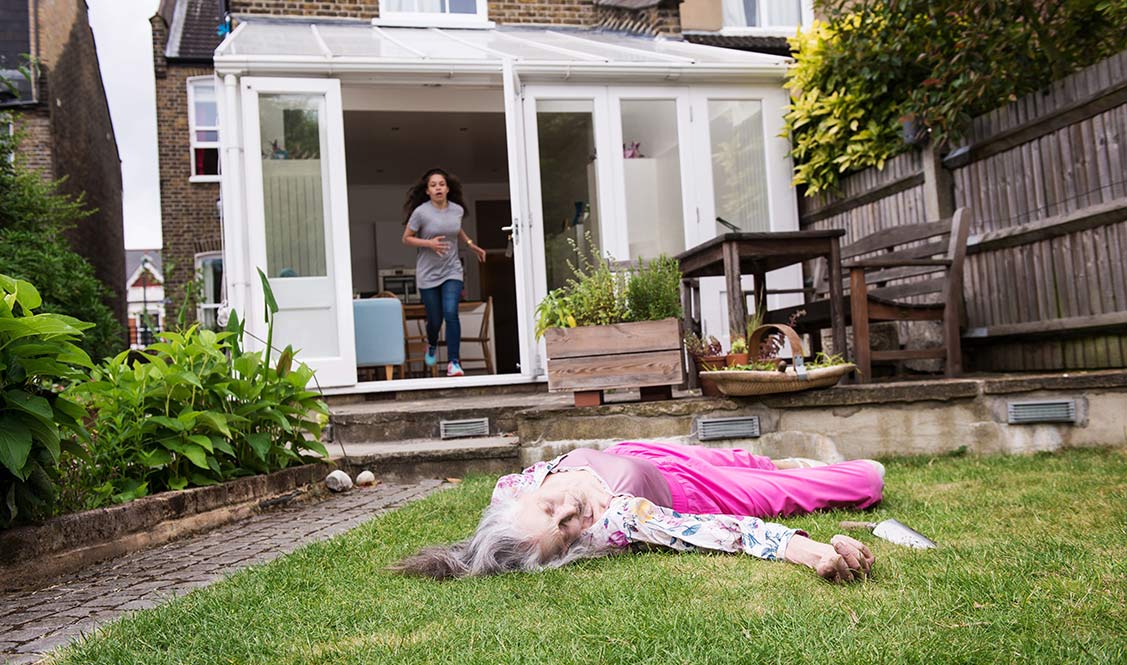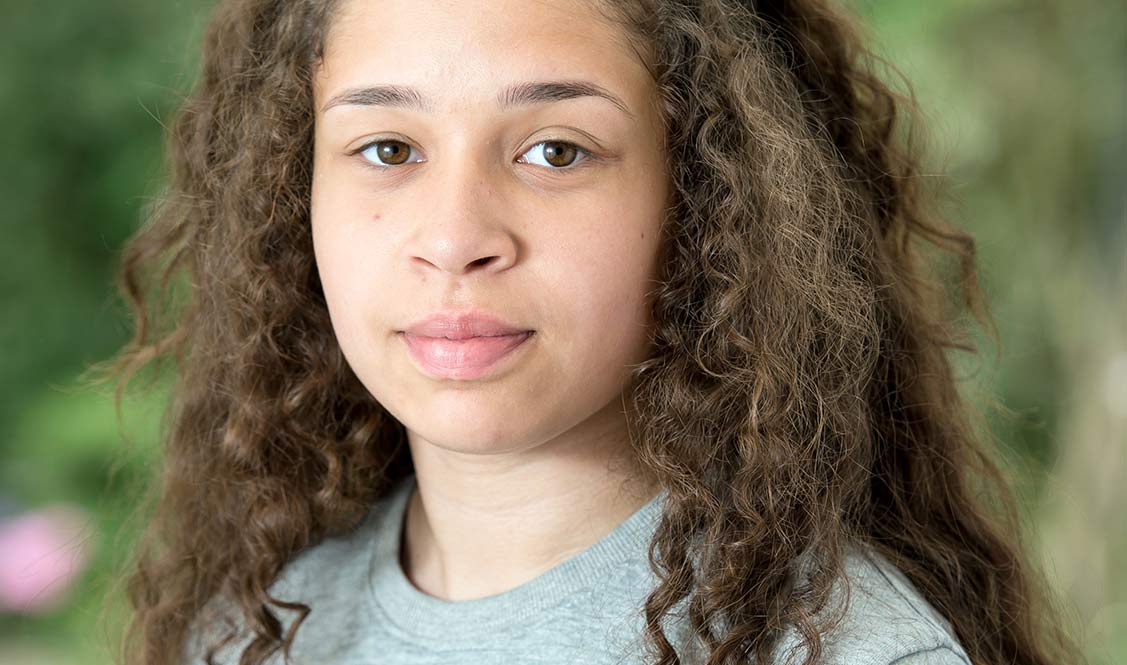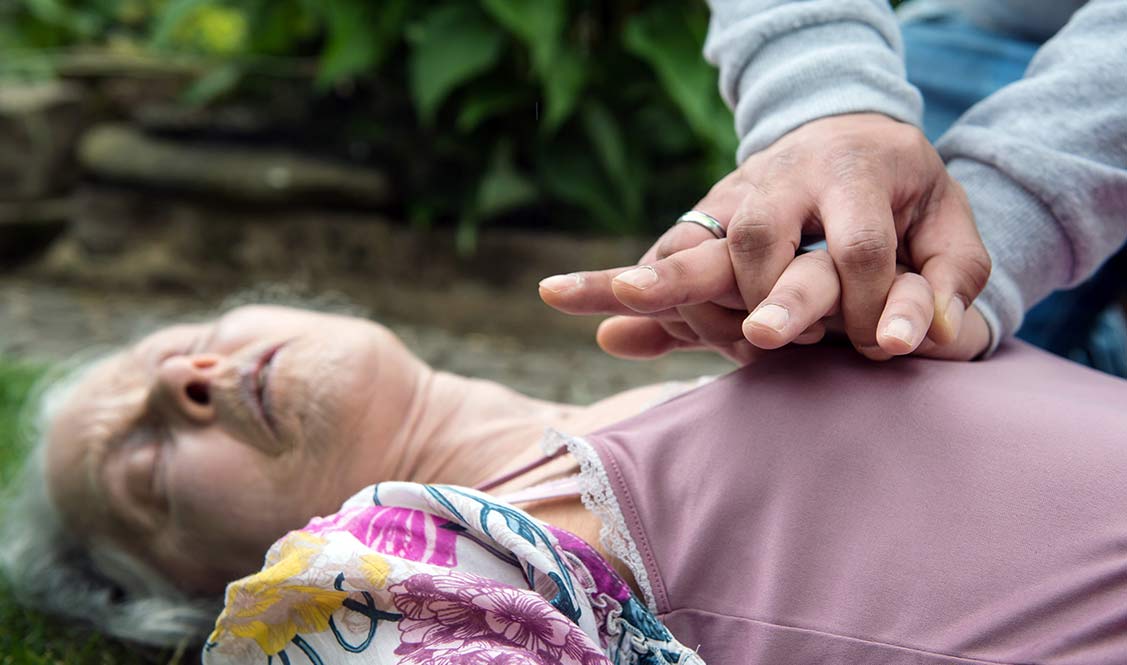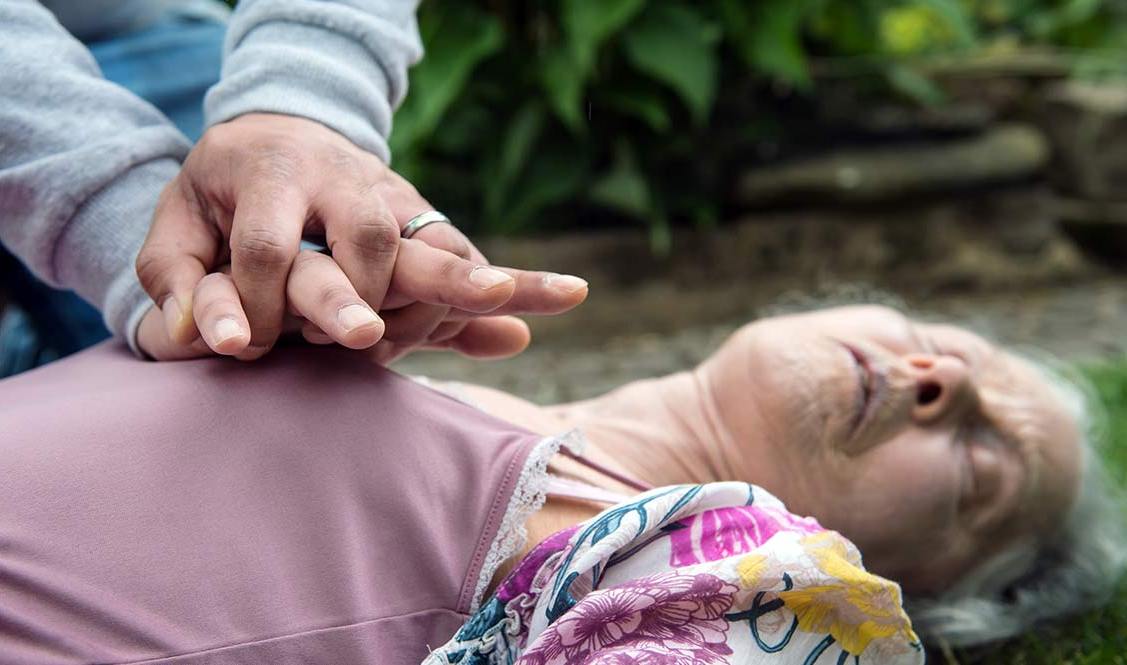Unresponsive and not breathing
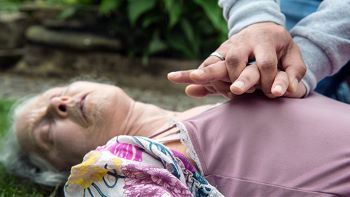
Learn how to help someone who is unresponsive and not breathing.
Learning objectives
- Learn how to recognise when someone is unresponsive and not breathing
- Learn the key action to help when someone is unresponsive and not breathing
- Practise applying the key action to a known situation in a role play
- Share something creative to inform others how they can help someone who is unresponsive and not breathing
Do you have a learner ID?
Login to save and track your results
Don't forget to tell us what you think about First Aid Champions. Your feedback matters!
Click through the slides below to watch the film
Click on the link below to view the video transcript.
How to help someone who is unresponsive and not breathing
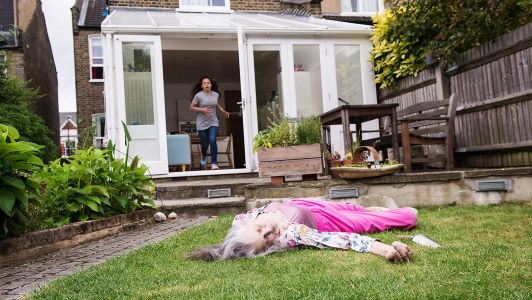
Step 1.
Someone who is unresponsive won't answer or move if you call their name or tap their shoulders. If it's an adult who is unresponsive, gently shake their shoulders.
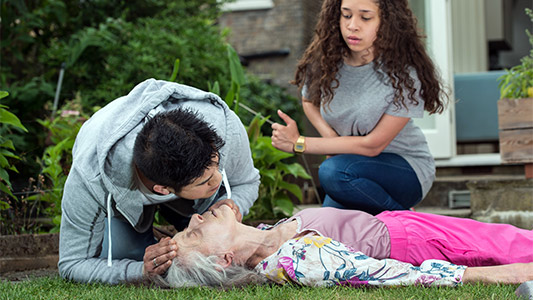
Step 2.
Check if they are breathing. Tilt their head back - is their chest moving? Can you hear, see or feel them breathing? If the answer is no, they are not breathing.
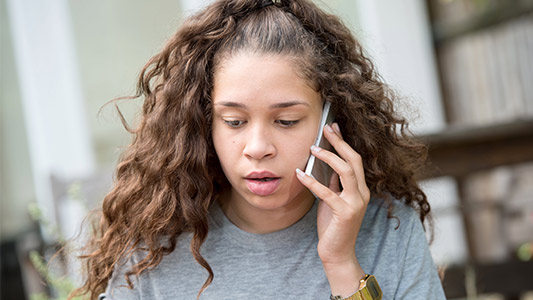
Step 3.
Get someone to call 999 immediately.
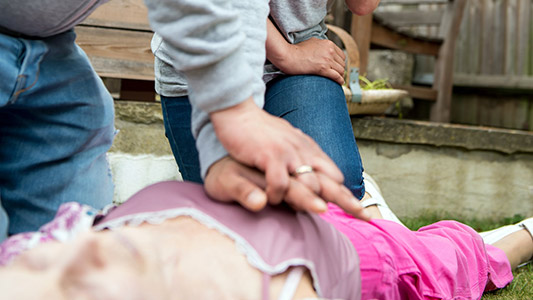
Step 4.
Give chest compressions by pushing firmly in the middle of their chest up and down. Push the chest hard and fast at a regular rate.
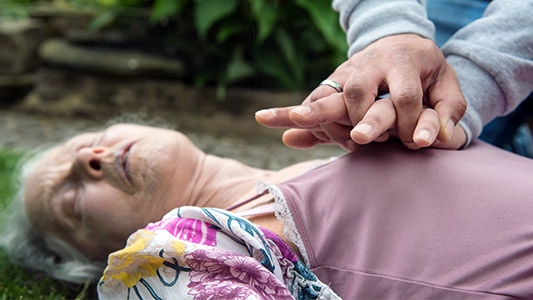
Step 5.
Repeat until help arrives.
Can you help someone who is unresponsive and not breathing?
Learn
These activities help young people learn what to do when someone is unresponsive and not breathing.
0.3mb
Unresponsive and not breathing - learn activity
Download Unresponsive and not breathing - learn activity (DOCX)
0.2mb
Unresponsive and not breathing - learner skill guide
Download Unresponsive and not breathing - learner skill guide (PDF)
Practise
These activities help young people practise how to help someone who is Unresponsive and not breathing.
0.4mb
First aid skill - practise activity ideas
0.1mb
Unresponsive and not breathing - practise role play
Download Unresponsive and not breathing - practise role play (PDF)
Share and remember
These activities help young people to remember the key actions and share their knowledge with others.
Or go to:
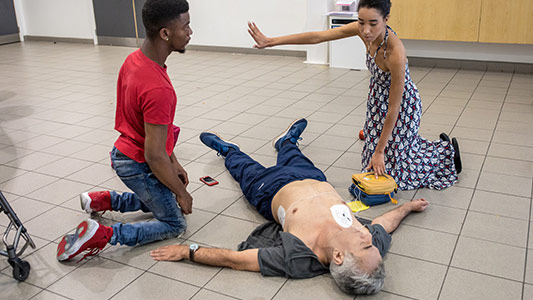
Unresponsive and not breathing when an AED is available
Learn how to help someone who is unresponsive and not breathing when an AED is available
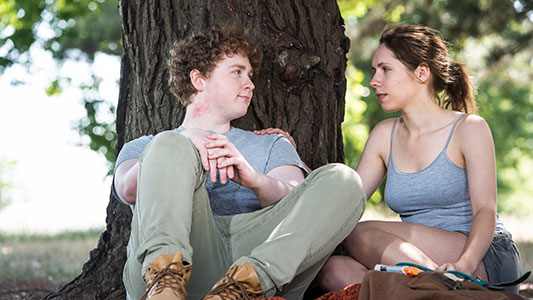
Helping others
Learn about the bystander effect, what inspires people to help and the qualities of people who act.
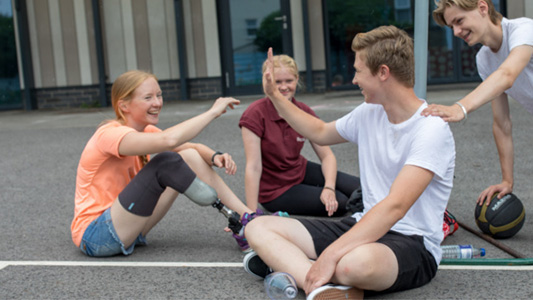
Safety and wellbeing
Learn and practise how to keep safe, use coping skills and look after your wellbeing when helping others.
Secondary guidance and support
This section includes curriculum links, a teacher and educator guide and everything you need to get started.


